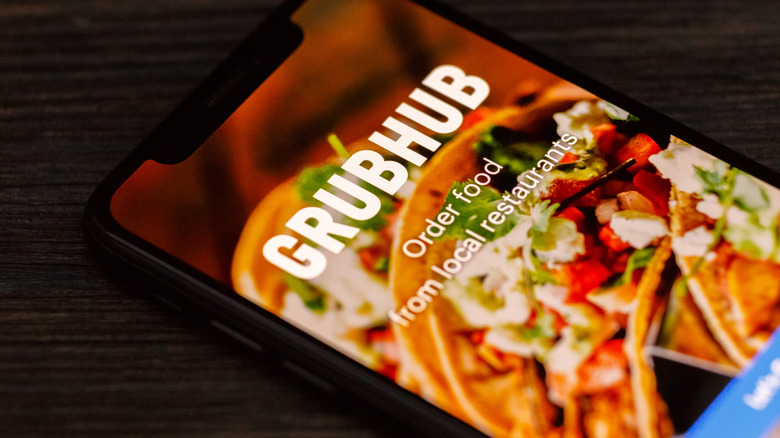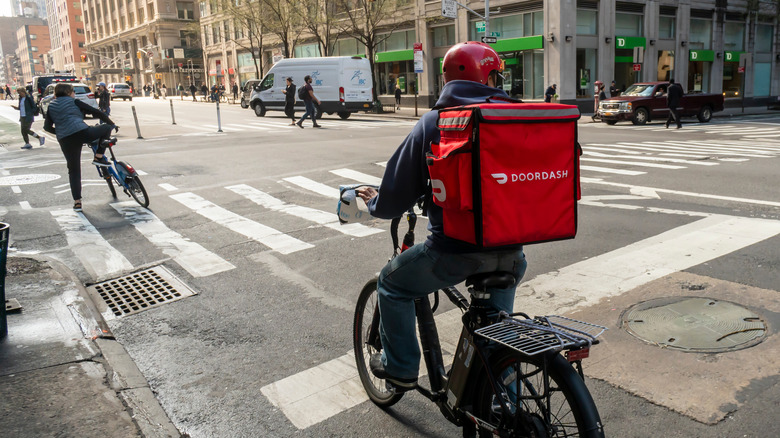How Apps Like Grubhub Stand To Gain If NYC Relaxes Its Delivery Fee Cap
People have been carting foodstuffs since the dawn of time, but legend has it that the first meal delivery dates back to Italy in 1889, says Grub Tech. King Umberto I and Queen Margherita — for whom the most famous Italian pizzas are named — sent out for a few pies during a visit to Naples. Since then, meal delivery has grown into a global industry, which Grand View Research points out is valued north of $200 billion.
Two fairly-recent major drivers of that staggering valuation have been the rise of third-party delivery services, such as Grubhub, Uber Eats, and DoorDash, as well as the pandemic. Accessible via easy-to-use apps, third-party delivery services offer a virtual bazaar of choices — at least in major cities — all available to be whisked to your door with a few clicks. The apps even streamline payment and tipping. The pandemic, for its part, made delivery one of the only viable ways to access prepared meals, as dining rooms closed to limit the spread of the coronavirus.
It was seemingly kismet and a win for all involved. People got to cut the monotony with no-prep meals, gig work positions allowed people to bring in extra cash, and restaurants with shuttered dining rooms had a way to fill the till. But the reality was often far from that, with third-party services charging restaurants upwards of 30% fees, which cut deeply into already thin margins, reports the AP.
Hundreds of millions lost
To counter the exorbitant fees that third-party delivery services charge, many municipalities introduced measures meant to help curb what was seen as predatory terms — given that many restaurants had little choice but to partner with these companies. In 2020, New York City codified legislation that caps delivery fees at 15%, ancillary fees, like marketing, at 5%, and most payment processing fees at 3%, says Restaurant Business. The legislation also required third-party delivery outfits to become licensed by the city.
Unsurprisingly, third-party delivery companies have continued to oppose such laws. Grubhub is lobbying New York City Council members to revise their fee cap, explains New York Post. The company's proposal would see the delivery fee cap remain at 15% but lift or remove the limits set on ancillary fees. Grubhub's position is that laws put in place to deal with the extraordinary circumstances of the pandemic need to be repealed. In a 2021 lawsuit brought against the City of New York, the companies claimed that the fee caps have cost "hundreds of millions of dollars."
The move is supported by some restaurateurs, as well. Speaking with Restaurant Business, Nourish Spot CEO Dawn Kelly highlighted the value of the marketing services third-party delivery companies can provide. "It's not as simple as taking out an ad in the community paper anymore, and we don't have the big budgets and expert staff to run sophisticated campaigns to put our brand in front of new audiences."

